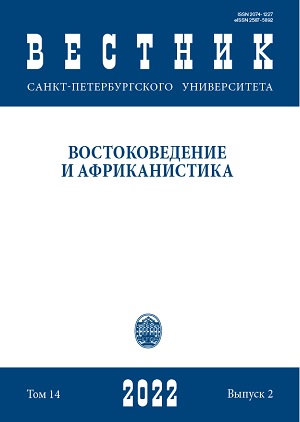The Discourse of “Globalization” in Relation to the History of the Mongol Empire and the Golden Horde
DOI:
https://doi.org/10.21638/spbu13.2022.204Abstract
In the first quarter of the 21st century, the verbal model of the Mongolian Empire as a “globalizing power” firmly entered scholarly discourse. Modern processes of globalization are compelling the study of similar manifestations in the past. The systematic method of historical modeling allows you to create a verbal model describing globalization, for example, in the 13th century. Thus, to introduce the concept of “globalization” in relation to the history of the Mongol Empire, the provision on the worldwide nature of the political, economic and ideological structures of the Genghisid state is used. The concept of “Mongolian/Horde globalism” is becoming widespread in the modern discursive field. Thus, during 2006–2020, the concept of “Mongolian globalism” became widespread not only in popular scientific works, but also in scientific articles and monographs. It is quite natural and natural that the largest conquests of the Genghisids in history led to the creation of a powerful state in which unified centralized control was established, including over transcontinental trade routes. The unified management contributed to the security of trade routes and, as a result, to the revival of trade and information exchange. Undoubtedly, the trade aspect, which is most clearly traced in the economy of the Mongol Empire and the Golden Horde, has a unifying and globalizing feature. However, its scientific assessment, as well as the identification of the nature and essence of the “Mongolian phenomenon” requires more in-depth research. The article explores the features of the formulated conceptual model, the accuracy and significance of the concepts involved for all participants of the discursive field. As a result, it is concluded that there is no reliable justification for the signs, forms and patterns of the development of the phenomenon of “Mongolian globalization” at the moment.
Keywords:
Mongolian Empire, Pax Mongolica, globalization, Golden Horde, Genghis Khan, Genghisids
Downloads
References
Downloads
Published
How to Cite
Issue
Section
License
Articles of "Vestnik of Saint Petersburg University. Asian and African Studies" are open access distributed under the terms of the License Agreement with Saint Petersburg State University, which permits to the authors unrestricted distribution and self-archiving free of charge.





